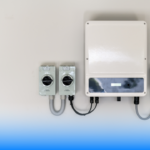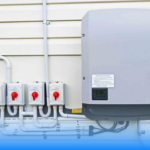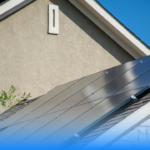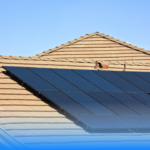How to Get Government Grants and Funding for Solar Panels
With the rising costs of energy and increasing environmental concerns, many UK homeowners are turning to solar power. Fortunately, the UK government offers various grants and funding options to help offset the costs of installing solar panels. In this article, we’ll explore the available financial assistance, eligibility criteria, and steps to apply, ensuring you can make an informed decision and benefit from renewable energy.
Introduction
Switching to solar energy is not only beneficial for the environment but also for your wallet. Here are some key points and statistics that highlight the importance of solar energy and government support:
-
- Rising Energy Prices: Energy costs in the UK have surged by over 50% in the past decade.
-
- Environmental Impact: Solar energy reduces carbon emissions, contributing to the UK’s goal of net-zero emissions by 2050.
-
- Government Incentives: Various schemes and grants are available to support the installation of solar panels.
Table of Contents
Understanding Solar Energy
Solar energy harnesses the power of the sun to generate electricity. It involves the installation of photovoltaic (PV) panels on your roof, which convert sunlight into electrical energy. This renewable energy source is clean, sustainable, and can significantly reduce your reliance on conventional energy supplies.
Government Grants and Funding Options
There are several government schemes aimed at promoting the adoption of solar energy:
| Scheme | Description |
|---|---|
| Smart Export Guarantee (SEG) | This scheme pays households for the excess electricity they generate and export back to the grid. |
| Green Homes Grant (GHG) | Although now closed, this scheme offered vouchers for energy-efficient home improvements, including solar panels. Keep an eye out for future similar initiatives. |
| Energy Company Obligation (ECO) | This scheme requires energy companies to support low-income households in making energy-efficient home improvements. |
Eligibility Criteria
To benefit from these schemes, you must meet certain eligibility criteria:
-
- Property Ownership: You must own the property or have the landlord’s permission if you are a tenant.
-
- Energy Efficiency: Your home should meet specific energy efficiency standards.
-
- Income Level: Some schemes are tailored for low-income households.
How to Apply for Grants and Funding
Applying for government grants and funding requires several steps:
-
- Research: Identify the most suitable grant or funding option for your needs.
-
- Energy Assessment: Conduct an energy assessment of your home to determine eligibility and potential savings.
-
- Application: Complete the application process, providing necessary documentation and meeting specified criteria.
-
- Installation: Once approved, proceed with the installation of solar panels by a certified installer.
Benefits of Installing Solar Panels
Installing solar panels offers numerous benefits:
-
- Cost Savings: Reduce your electricity bills by generating your own power.
-
- Environmental Impact: Lower your carbon footprint and contribute to environmental sustainability.
-
- Increased Property Value: Solar panels can increase the value of your property.
Frequently Asked Questions
Savings depend on several factors, including the size of the system, your energy consumption, and current energy prices. On average, UK households can save between £100 to £300 annually.
Solar panels require minimal maintenance, primarily cleaning and occasional inspections. Most systems come with warranties that cover major repairs for up to 25 years.
Yes, through the Smart Export Guarantee (SEG), you can sell any surplus electricity generated by your solar panels back to the grid.














